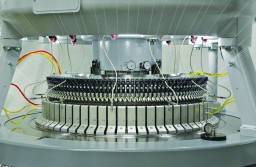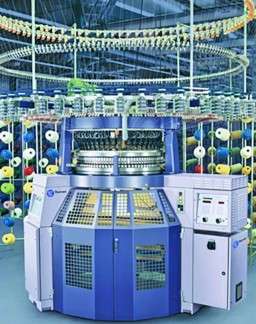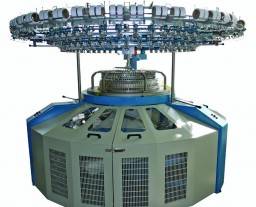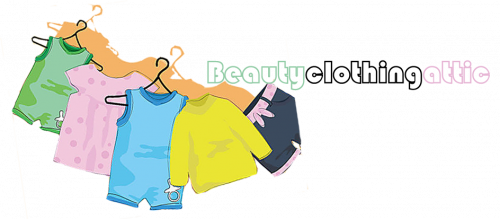
In a market where every company stands by its product’s quality, performance and longevity, it is hard to select the right machine. Such is the case with the circular knitting machine manufacturers, wherein almost every machine is equipped with productivity enhancement features such as: in-built cleaning fans and suction pumps, tensionless yarn feeders, oil circulation systems, needle breakage sensors, fabric scanners and yarn meters. Having realized the same, manufacturers of such technologies and machines have started focusing on the consistency of their machine’s performance, consequently reducing the machine down time, increasing the operating efficiency and minimising defects such as drop stitches, yarn streaks, barriness, fabric press off, broken ends and spirality. Focusing on the same, StitchWorld reviews the latest technologies of global and local circular knitting machine suppliers.
Undoubtedly, Mayer & Cie is enjoying greater market share as even its opponents accept that it is the best performing machine, but with high price. The D4-2.2 II is a high-speed circular knitting machine for rib fabrics, capable of producing fine quality Lycra fabrics and can be modified for producing interlock fabrics. This modification is possible due to conversion of 2.2 feeders per inch to 4.4 feeders per inch. The machine is equipped with Mayer & Cie’s patented QCe (Quick Change Easy) system, which allows quick cylinder and dial exchange within 5 hours by one person, guaranteeing lower downtime. Timo Schramm, Regional Sales Manager, Mayer & Cie said, “Knitting is all about precision and Mayer & Cie has technologies to manufacture precise machinery, due to which customers prefer fabric made by our machines. In terms of quality and productivity, if someone wants to produce 5 tonne per day, only 10 Mayer & Cie machines will be needed. In case of other brands, at least 12 machines would be required to produce the same amount. This ultimately reduces the labour requirement, space requirement, power consumption, maintenance and spare parts consumption, which in turn reduces the overall operating cost.” Another unique feature of the machine is the central stitch formation that guarantees reliable needle guidance, permits simple stitch length adjustment and ensures constant needle clearance. Available in 14 to 32 gauges and cylinder diameters of 26 inches, 28 inches and 30 to 38 inches, the D4-2.2 II can knit at a speed of 33 RPM and perform at close to 100% efficiency.
This story first appeared in the Stitch World, October Issue. SUBSCRIBE TODAY

The Italian pioneer Santoni doesn’t need any introduction in the field of circular knitting machines. With a wide range of circular knitting machines, Santoni’s Atlas high-speed single jersey knitting machine is at the forefront of the company’s offerings. With 3 yarn feeders per inch and up to 90 needles per inch, the machine does not utilize sinkers for knitting fabric, due to which it consumes 50% less oil and considerably less amount of energy due to less moving parts. This not only avoids the risk of any sinker lines in the fabric but also avoids loops distortion caused by the movement of sinkers and allows tighter loop lengths, no less than what is possible with any single jersey machine equipped with sinkers. Instead of the sinkers, the machine is equipped with patented holding-down jacks which help in quick re-starting of the knitting, after a fabric press-off. At the time of making the loop (while needles descend), the holding-down jack moves backwards and the loop is made on the cylinder edge. “The general demand and challenge for finer gauges in circular knitted fabrics have been faced by Santoni. We have resolved it with our own special patented systems that have already proven their performance in the Atlas single jersey 50 gauge and 60 gauge range, and we are now presenting a further advance of up to 80 gauge and 90 gauge with some important new innovations,” highlights Gianpiero Valsecchi, Area Sales Manager, Santoni. For longevity of operations, the machine’s cam boxes are made out of a special aluminium alloy called Ergal, having a great heat dissipation property. The alloy is capable of avoiding dimensional changes due to the variation of temperature between the starting and the regular running of the machine. Even the yarn carrier head is made of black Zirconium, which allows better visibility of the yarn and have high resistance to wear and tear.
Specializing in jacquard circular knitting machines, German-pioneer Terrot has done critical interventions in its machines to increase their performance and precision. Applied to Terrot’s S3P4F mini-jacquard striper machine are the S4F plain striper and the electronic jacquard SCC4F machine. S4F’s speed up system increases the machine’s speed when it knits plain fabric and slows down again to knit stripes, making the machine’s up to 20% more productive. This is particularly useful for fabrics which have a few or just one stripe in the design. Another interesting component of the machine is the TFME 100 – a fully motorised elastane yarn feeder. Being much more compact in comparison to the previous models, the TFME 100 yarn feeders generate less heat and enable easier yarn handling. The company has also replaced the magnetic needle selection system with Piezo needle selection system, because of eight separate selection fingers for miss-tuck-knit on each feeder. The latter provide more process reliability and machine performance in daily production. Piezo technology guarantees a reliable needle selection especially on fine gauges.
Another company with deep penetration in India’s circular knitting industry is Pailung. The company has developed a new kind of sinker cam which can produce loop length of 2.3 mm in 40s cotton count, not possible by knitting machines without this type of cam. Secondly, knitting machines from Pailung are equipped with Zirconium yarn carrier, which are usually made of steel. But in case of steel, the yarn carriers become magnetic and attract other yarn carriers and needles, causing them to break and result in increased downtime and needle breakage. In case of Zirconium yarn feeders no such problem occurs, because of the metal’s non magnetic nature. Hence, there is less needle breakage and overall efficiency of the machine is enhanced. Pailung claims use of Japanese steel in its cylinder and cam so that the machine can keep running 24×7. One of the company’s machines can knit using three different kinds of yarns at the same time – polyester/viscose or nylon along with cotton and Lycra. Such a fabric is required for producing a jacquard-like effect on a single jersey fabric, wherein cotton yarns are burnt-off during the printing process by sulphuric acid.

Some companies have done small changes and claim that these changes amount to significant benefits. One such company is Wellknit Machinery from Taiwan which claims that its latest circular knitting machines comes with high raise sinker cam and steel backed cam box to reduce the heat produced. With a diameter of 30 inches, the machine can easily run at a high-speed of 35 RPM. Another unique feature of the machine is the location of the VDQ (Variable Diameter for Quality) pulley, outside of the machine, which is otherwise placed inside, in most of the knitting machines, which helps in easy maintenance. Equipped with sinkers from Kern-Liebers Germany, the single jersey circular knitting machines from the company utilize a patented fabric rolling system, wherein the fabric-rolling tension can be adjusted easily by an operator. “The fact that we have sold double jersey machines with 178 feeders in Tirupur and they are running without any problem, is testimonial of our machines performance,” asserts P. Gopi, MD of the Wellknit (associate of Wellknit Taiwan). Even the paints used to coat the outer body of the machines are resistant to the corrosion caused due to needle oils and hence increase the life of the machine.
The list of companies offering circular knitting machines is endless but the quality and consistency of output and downtimes – is and will always remain a matter of concern – for a buyer who is making the selection. Analysing the manufacturer’s history and talking to the users to assess the service, ROI and spare part price is a good way to start the decision making.
Make in India
Although international brands have been at the forefront of developing technologies for circular knitting, Indian companies such as The Empire Textiles, have also developed circular knitting machines more suitable for the demands of knitters in Tirupur. One of the company’s circular knitting machines can produce fabric in two different diameters. “Due to this patented technology, if one has machine of 26 inches diameter, it can be converted to 24 inches. Similarly, a machine with a diameter of 30 inches can be converted to a machine with a diameter of 28 inches,” says S. Boopathy, Owner, The Empire Textiles. The company claims that a lot of fabric companies are replacing the cylinders of their knitting machines with cylinder of relatively smaller diameters, mostly 17 inches, as the same is suitable for vest manufacturers.

Leave a Reply